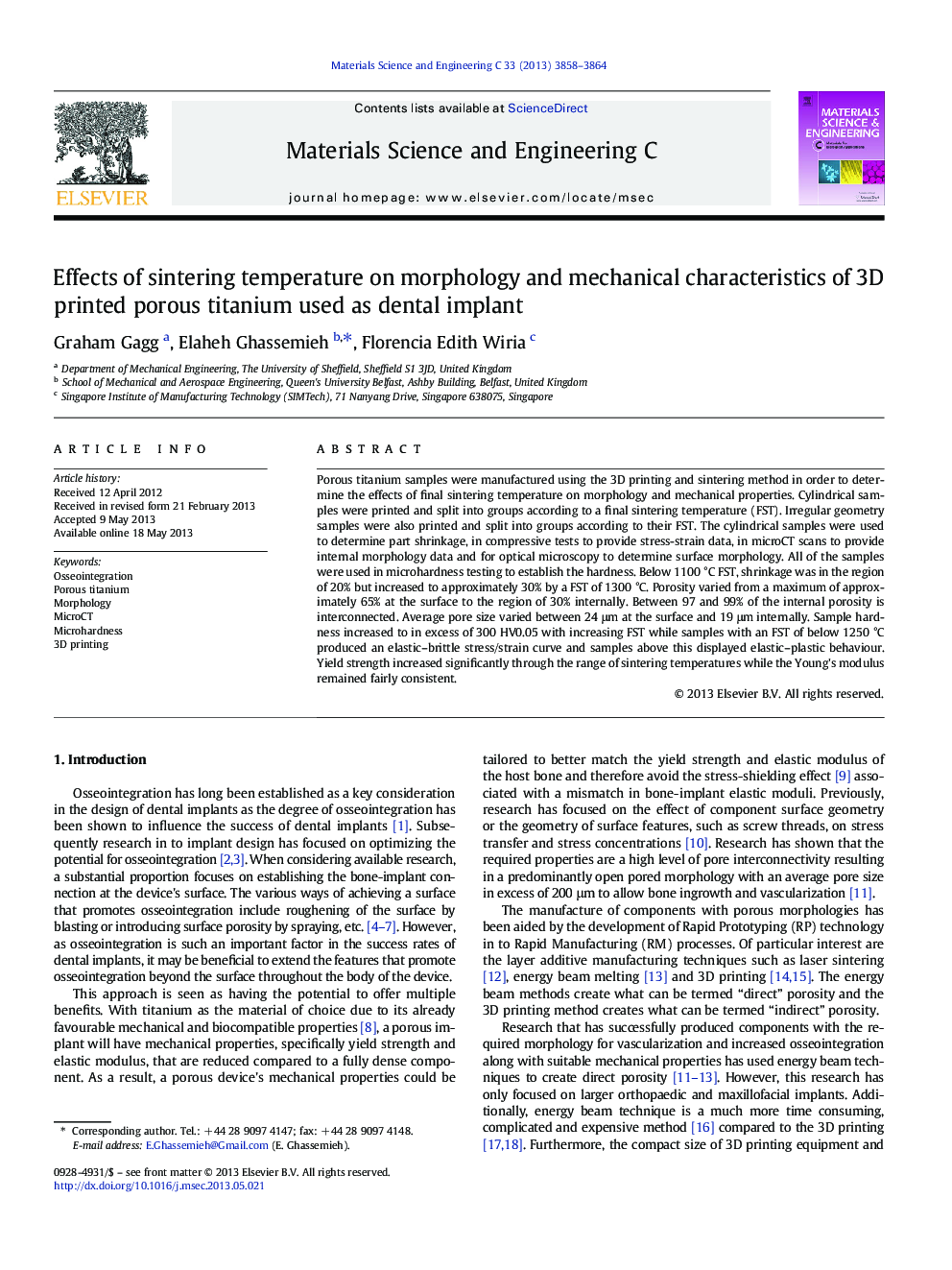| Article ID | Journal | Published Year | Pages | File Type |
|---|---|---|---|---|
| 10614561 | Materials Science and Engineering: C | 2013 | 7 Pages |
Abstract
Porous titanium samples were manufactured using the 3D printing and sintering method in order to determine the effects of final sintering temperature on morphology and mechanical properties. Cylindrical samples were printed and split into groups according to a final sintering temperature (FST). Irregular geometry samples were also printed and split into groups according to their FST. The cylindrical samples were used to determine part shrinkage, in compressive tests to provide stress-strain data, in microCT scans to provide internal morphology data and for optical microscopy to determine surface morphology. All of the samples were used in microhardness testing to establish the hardness. Below 1100 °C FST, shrinkage was in the region of 20% but increased to approximately 30% by a FST of 1300 °C. Porosity varied from a maximum of approximately 65% at the surface to the region of 30% internally. Between 97 and 99% of the internal porosity is interconnected. Average pore size varied between 24 μm at the surface and 19 μm internally. Sample hardness increased to in excess of 300 HV0.05 with increasing FST while samples with an FST of below 1250 °C produced an elastic-brittle stress/strain curve and samples above this displayed elastic-plastic behaviour. Yield strength increased significantly through the range of sintering temperatures while the Young's modulus remained fairly consistent.
Related Topics
Physical Sciences and Engineering
Materials Science
Biomaterials
Authors
Graham Gagg, Elaheh Ghassemieh, Florencia Edith Wiria,
